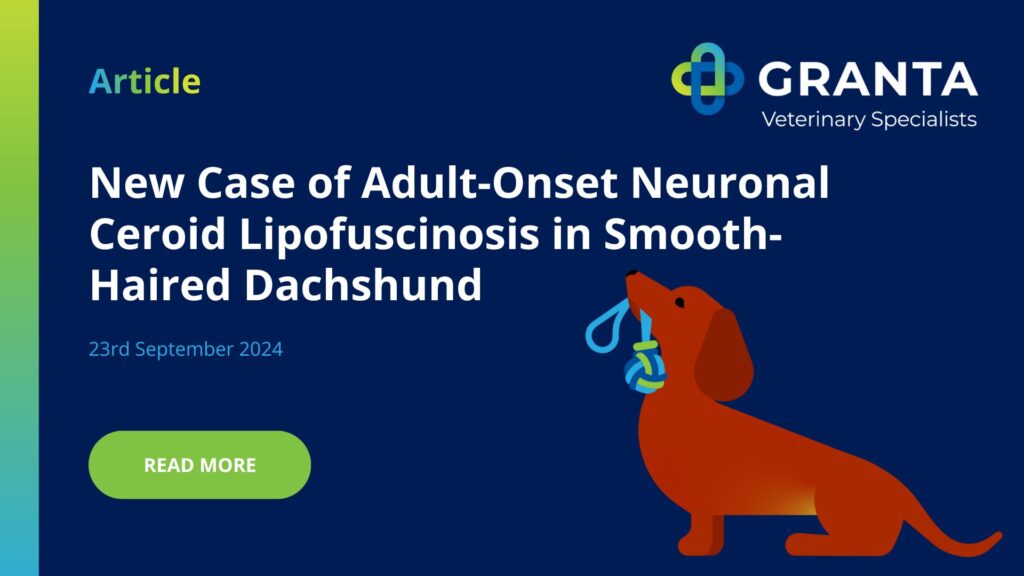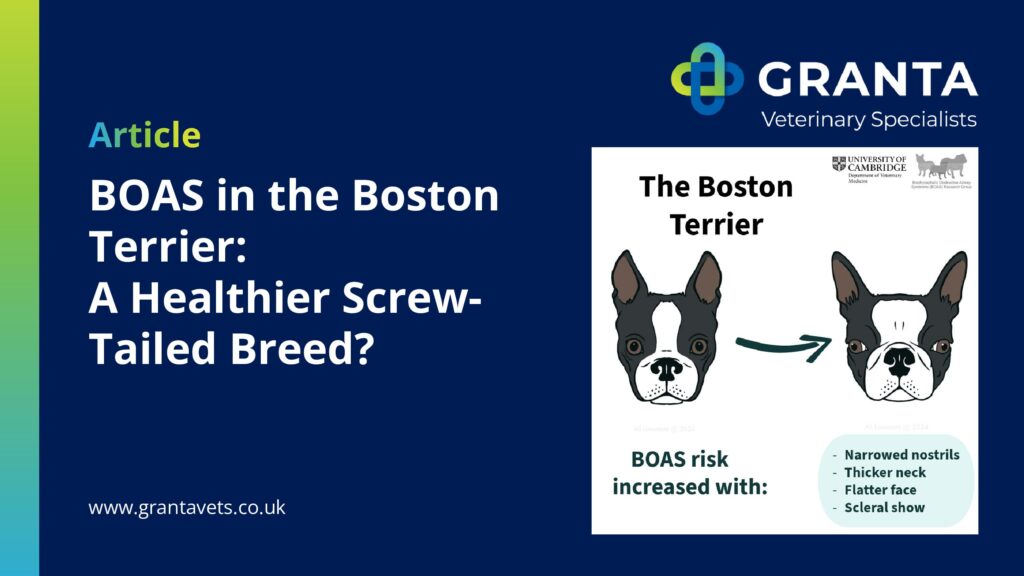New Case of Adult-Onset Neuronal Ceroid Lipofuscinosis in Smooth-Haired Dachshund
Monday September 23, 2024
Introduction
A newly published case report by Diogo Gouveia, Max Foreman, and Emilie Cloup in Vet Record Case Reports presents a rare, adult-onset form of Neuronal Ceroid Lipofuscinosis (NCL) in a smooth-haired dachshund. NCL is a progressive neurodegenerative disease found across several species, including dogs, and is typically inherited. This particular case highlights the possibility of a novel subtype of NCL caused by an unidentified genetic mutation.
Case Summary
The patient, a 5-year-old female smooth-haired dachshund, exhibited a range of neurological symptoms, including progressive visual impairment, unprovoked aggression, head pressing, circling, and episodes of pelvic limb ataxia. Despite comprehensive diagnostics, including blood tests, urine analysis, brain MRI, and cerebrospinal fluid (CSF) analysis, all results were normal.
Genetic testing for common mutations linked to NCL in dachshunds, particularly PPT1 and TPP1 genes, was negative, ruling out the typical causes of NCL found in young dogs.
Treatment and Disease Progression
The veterinary team, considering the possibility of an inflammatory central nervous system disorder, initiated treatment with immunosuppressive corticosteroids and antiepileptic medication. Unfortunately, the dog’s neurological condition deteriorated rapidly. The aggressive episodes increased in frequency, accompanied by signs suggestive of seizure activity, such as hypersalivation. Given the rapid decline and the severity of symptoms, the decision was made to euthanise the dog 10 days after the initial presentation.
A postmortem examination revealed granular material within neurons, particularly in the thalamus and hypothalamus, consistent with NCL. Despite the clinical signs and postmortem findings, genetic testing for known mutations came back negative, suggesting that this may be a previously unknown form of NCL in dachshunds.
Key Learning Points
This case highlights the importance of considering NCL as a differential diagnosis in older dogs with neurological symptoms, even when genetic testing for known mutations is negative. The key learning points from this case include:
- NCL Should Be Considered Across All Age Groups and Breeds: While NCL is often associated with juvenile-onset in certain breeds, this case demonstrates that the disease can manifest in adult dogs as well. Veterinarians should consider NCL in cases of progressive visual impairment, behavioural changes, and motor deficits, regardless of the dog’s age.
- Genetic Testing May Not Always Identify the Cause: The absence of known mutations does not exclude NCL. When genetic testing is inconclusive, postmortem examinations, histopathology, and electron microscopy are essential tools for confirming the diagnosis.
- Aggression and Behavioural Changes May Be Key Symptoms: Unprovoked aggression, especially towards inanimate objects, along with circling and head pressing, are important neurological signs that may indicate NCL or other neurodegenerative conditions.
- Postmortem Examinations Are Crucial: Postmortem analysis, including brain histopathology, remains critical for confirming NCL and identifying potential new subtypes. Without such examinations, it is difficult to advance our understanding of the disease and its genetic causes.
- Whole-Genome Sequencing Could Play a Crucial Role: Given the absence of mutations in known genes, whole-genome sequencing may be necessary to identify novel genetic mutations responsible for NCL in cases like this.
Conclusion
This case of adult-onset NCL in a smooth-haired dachshund adds to the growing knowledge of NCL’s variability in clinical presentation and genetic aetiology. The potential discovery of a new subtype of NCL underscores the need for continued genetic research to better understand the full spectrum of this disease.
For veterinarians, this case highlights the importance of considering NCL as a differential diagnosis in dogs presenting with progressive neurological symptoms, regardless of age or genetic test results.
Download the full case report here
Download pdf


